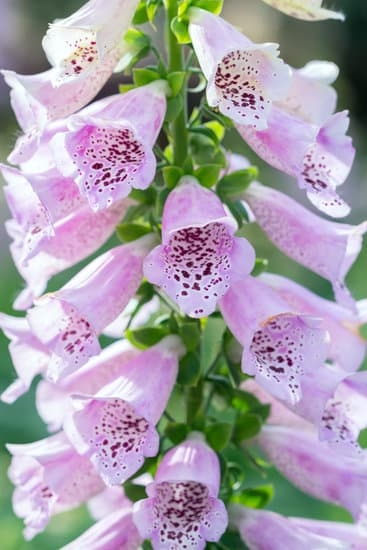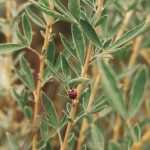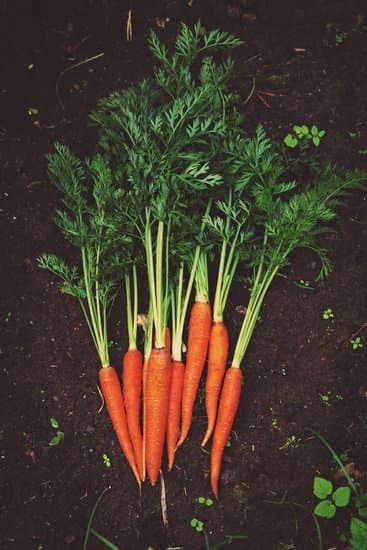Introduction
Gardening is a wonderful way to get some exercise and enjoy the outdoors. To ensure you have a positive experience, it’s important to dress appropriately for the activity. Wearing clothes that are not suitable for gardening can lead to various issues such as discomfort or even injury. It also makes it harder to move around and get your garden tasks done.
To ensure comfort and safety while gardening, here’s what to wear when gardening:
There are several reasons why it’s important to wear appropriate clothing while gardening. Good clothing will protect your skin from dirt, sun exposure, insect bites, and moisture. Long pants can help protect against any sharp objects in the garden like thorns or sticks, while long sleeves can provide extra protection from the sun or any other elements you may be exposed to while working outside. Clothing made from breathable materials is best so that your skin doesn’t become too hot and sweaty during summer months. Comfort should be a major factor when deciding on what outfit to wear – make sure not to pull out any constricting pieces of clothing for this activity! Additionally, closed-toed shoes are highly recommended since you never know what you may encounter in the garden – anything from sticks or stones could cause discomfort if you aren’t wearing proper footgear! Lightweight moisture-wicking fabrics like polyester or nylon are best so that you don’t end up feeling weighed down by wet fabrics in humid weather conditions. Of course, items like hats or sunglasses can help keep your skin in check during sunny days and offer an extra layer of protection on windy days so consider these as optional accessories too! Finally no matter how good your outfit is, always remember to apply sunscreen and bug repellent – these two items will greatly increase your comfort level making your outdoor activities much more enjoyable.
What to Wear
When it comes to working in the garden, wearing the right clothing and having suitable protection is essential. Whether you’re pulling weeds, digging into soil, or planting delicate flowers, what you wear will affect both your comfort and safety. Gardening clothes should offer adequate security against the elements and insects that could harm you. Depending on how long of a session you expect to have in the garden, your choice of clothing should reflect breathability – lightweight materials are a good way to combat humidity and heat. Long pants and sleeves can act as an extra layer of protection from sharp objects such as thorns and clippers as well as irritating insects like mosquitoes or bees. It also helps keep you safe from UV rays caused by the sun; hats come in handy here too! Lastly, be sure to wear durable shoes with appropriate grip for your activities – nothing like slipping out of action at a crucial moment! No matter what type of gardening activity you’re taking part in, be sure to focus on staying comfortable while protecting yourself from potential hazards.
Weather-Appropriate Clothing
When considering what to wear when gardening, you should always keep the weather in mind. Layering clothes is a great way to make sure that your outfit is temperature-appropriate for outdoor activity. Start with a comfortable base layer such as a t-shirt and shorts or long pants, depending on the season. Don’t forget to add a light sweater or other warm layer for colder seasons and days. To finish off your look, add an outer layer of waterproof rain gear or wind protection—will help protect from inclement weather. Lastly, don’t forget accessories such as hats, gloves and boots to keep you both stylish and safe while enjoying your time outdoors. With the right clothes, you can be comfortably outside no matter the weather!
Breathable Fabrics
When gardening, it’s important to wear breathable fabrics and clothes that keep you cool. Materials like cotton, linen and lightweight synthetic fabrics are ideal because they allow the air to flow freely around your skin. Avoid wearing heavy materials such as denim or wool as they can cause you to become too hot when working in direct sunlight. In addition to keeping you cool, wearing light and loose fitting clothing while gardening will also protect against potential skin irritation from soil or other gardening material. Depending on the type of work you’re doing, it’s also a good idea to layer your clothing so that it’s easy for you to strip off layers as necessary depending on how warm you get during the activity. Prolonged exposure to the sun is best avoided, so cover up for protection with a wide-brimmed hat made from breathable fabric and UV protective sunglasses if needed. And finally, always make sure shoes are comfortable and snug-fitting to avoid any trips or slips in the garden.
Accessories
When gardening, it is important to wear clothing that is comfortable and sturdy, such as khakis or jeans and a light shirt or tank top. Closed toe shoes, sandals, or boots should also be worn to protect the feet. Additionally, wearing accessories like hats to keep the sun off, sunscreen to protect your skin from harmful UV rays, and gloves can help make your gardening experience more comfortable and enjoyable. Hats are essential for protecting you from the sun and providing additional overall protection when outdoors during warmer months. Sunscreen should also be applied while outside in order to decrease chances of skin cancer, wrinkles, and other skin damage from prolonged exposure to ultraviolet radiation. Lastly, gloves are great for keeping your hands clean and reducing risk for blisters, cuts, scrapes and splinters that are associated with working with plants and soil in the garden.
Footwear
When gardening, it is important to wear the right footwear that will provide both safety and support. Shoes with a good grip are essential for keeping your footing secure and avoiding slips or trips in outdoor spaces that may be uneven or wet. Closed-toe shoes are best for protection from thorns, sharp tools, and debris from the garden. Constructed from waterproof materials, such as rubber or neoprene, will also keep your feet dry. For deeper gardens and those involving more physical activity and bending over, consider investing in some heavy-duty boots with steel toe caps to protect against compression injuries if something heavy is dropped onto your toes. Thick socks can also provide excellent protection alongside a good pair of hard-wearing shoes or boots.
Organization
When it comes to gardening, it is important to plan ahead and think about what you are going to wear. This can help ensure the safety, comfort, and convenience of your activities. To start, you should choose clothing that is lightweight and breathable while providing enough sun protection. You may also consider wearing UV-protecting sunglasses, a wide-brimmed hat, gloves to protect your hands, and boots or shoes with good traction. Additionally, long pants can provide protection from thorns and ticks while garden aprons can aid with carrying items such as tools, seeds, small plants and other supplies. If there is potential for large amounts of dirt or mud, you might want to wear overalls that can be taken off upon returning indoors. And lastly, don’t forget a basic first aid kit in case of minor injuries! By planning ahead for gear selection and use when it comes to gardening you will be comfortable and safe all day long!
Conclusion
When dressing for gardening, it is important to take the necessary precautions to protect yourself from the elements and avoid any potential injury. Wear clothes that are comfortable and lightweight, so that they won’t restrict your movement. Make sure to wear sunscreen to protect your skin from UV rays and insect repellent to keep away pesky bugs. Depending on what type of gardening activity you are doing, different footwear might be required; for example, if you need extra grip, consider investing in some good quality garden shoes or rubber boots. Additionally, tie back long hair and remove any jewellery or watches before starting a gardening session as these can easily get snagged in plants or tool handles. Overall, when considering what to wear when gardening, comfort comes first but protection is also key.

Welcome to my gardening blog! I am passionate about plants and enjoy sharing my knowledge and experiences with others. In this blog, I will write about everything related to gardening, from tips on how to get started to updates on my own garden projects.





